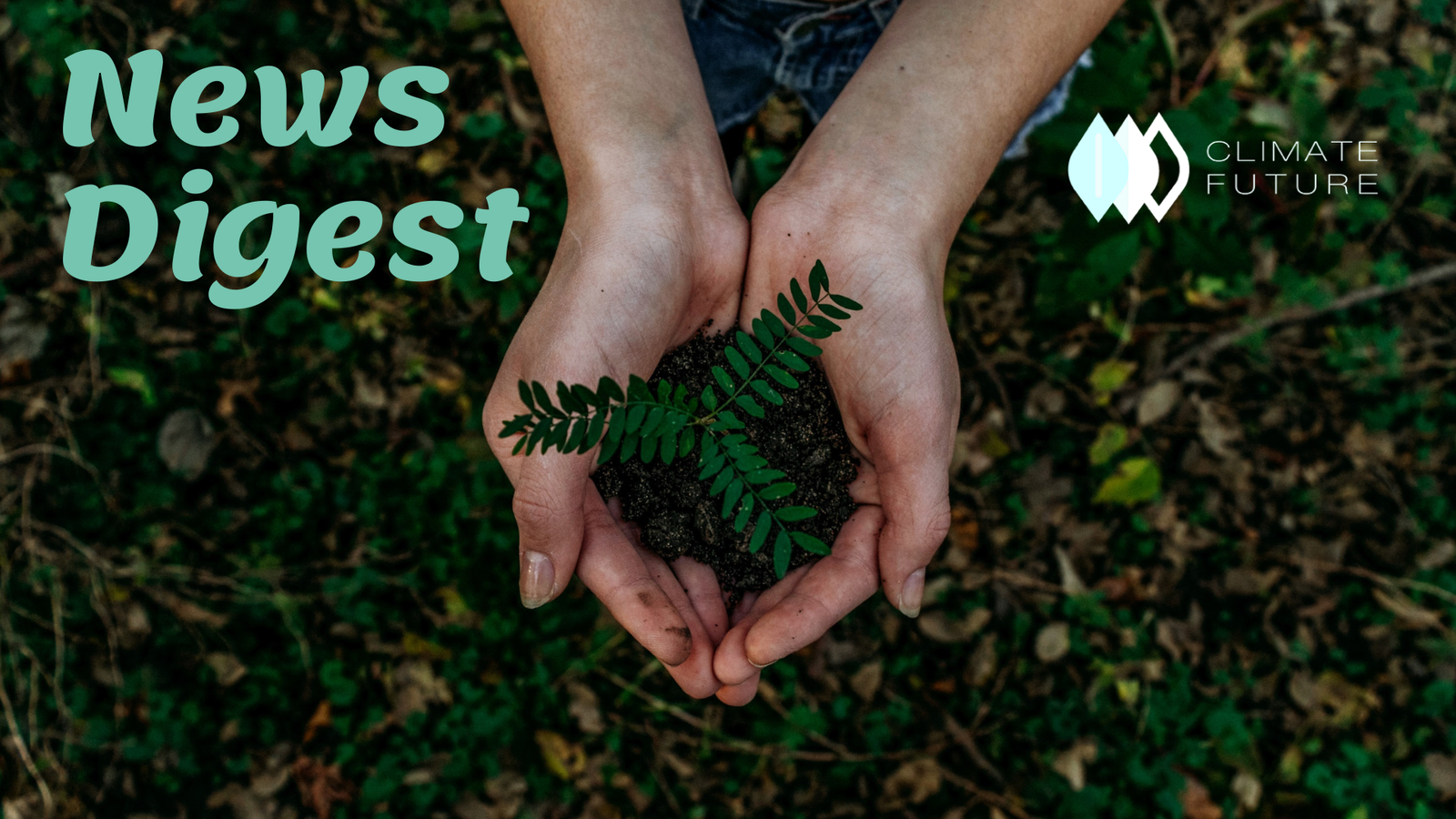Healthy forests, healthy planet, healthy humans
Forests are crucial to human well-being and health as they cover 31% of Earth’s land and provide a home to 800% of all land-based species. However, their loss across the earth is threatening people around the world. There are five important things that we need to know about the interconnection between forests and human health.
- Carbon sinks combat climate change
Forest ecosystems maintain a healthy planet by regulating the climate, watersheds, and rainfall patterns. In addition, it provides oxygen which is crucial to human existence. Healthy forests can reduce climate change by acting as carbon sinks by absorbing around two billion tonnes of carbon dioxide.
2. Nature’s pharmacies: from masks to medicine cabinets
Forest products are used around the world every day as many as one-quarter of developed countries and 80 percent of developing nations depend on plant-based medical drugs. Forests contain about 50,000 plant species used for medical purposes by multinational pharmaceutical companies and local communities.
3. Dinner for 1 billion people
Nearly one billion people globally depend on harvesting wild food such as fruits, herbs, nuts, meat, and insects for nutritious diets. The consumption of wild animals is estimated to use between 60 and 80 percent of daily protein needs in some remote tropical areas.
4. Forests are crucial for sustainable development
Forests give income, employment, and goods and services to 2.5 billion people worldwide, which is almost one-third of the global population. To get sustainable development and the 2030 Agenda, it is crucial to keep forests and humans healthy.
5. Forests need protecting
Many governments have implemented forest-friendly policies and others have improved investment in trees and woodlands. The UN started the Decade for Ecosystem Restoration (2021-2023) and its agencies are making partnerships with local to global stakeholders to protect forests better.
General Assembly votes to seek World Court’s opinion, in the quest for ‘bolder’ climate action
The resolution was introduced by the cyclone-battered Pacific Island nation of Vanuatu, with the support of a “core group” of 17 countries from different regions. It is emphasized the adverse impacts of climate issues on climate justice in small island developing States. According to the latest climate science, unveiled this month, humans have the responsibility for virtually all global heating over the last 200 years. The Intergovernmental Panel on Climate Change (IPCC) report stated that limiting the global temperature increase to 1.5 degrees Celsius above pre-industrial levels is achievable, but time is running out. The UN chief highlighted that now is the time for climate justice and climate action. Cooperation between nations, generations, cultures, and people can overcome the climate crisis. An advisory opinion from ICJ could address the climate crisis by boosting cooperation. That can be a major catalyst for urgent and equitable climate actions to stop global warming and limit climate-induced human rights harms.
Flagship UN report extolls win-win water partnerships to avert a global crisis
The new edition of the UN World Water Development Report which emphasizes twin themes of cooperation and partnerships was launched before the UN 2023 Water Conference. It highlights the collaborative ways that different actors can work together to solve common problems. There is an emergency that needs to form strong global mechanisms to prevent the international water crisis from uncontrollable event. As the finding from the report, 3.6 billion people lack access to safe sanitation and 2 billion do not have safe drinking water globally. It is expected that the world’s urban population with water scarcity can be doubled from 930 million in 2016 to between 1.7 and 2.4 billion people in 2050. Building strong cooperation and partnerships are the main factors in overcoming existing challenges and realizing human rights to water. Economic water scarcity is a huge problem where governments cannot give safe access to water flows. As 153 countries are sharing 900 rivers, lakes, and aquifer systems with over half countries having signed agreements, strengthening transboundary cooperation is the major tool to escalate tensions and avoid conflict. The partnership is mutually beneficial for both city dwellers and smallholder farmers.
Extreme weather: UN global early warning initiative ‘fast-tracked into action’
The record-breaking Tropical Cyclone Freddy led to severe disruptions to major services in southeast Africa. It caused a dangerous cholera outbreak and highlighted the importance of early warning systems that can save livelihoods and lives from rising extreme weather conditions. It is expected to see stepped-up coordinated actions in upcoming months in Small Island Developing States and Least Developed Countries, initially in 30 particularly at-risk countries. At the same time, the UN’s initiatives and existing life-saving actions will be implemented, “ensuring the Early Warnings for All campaign turns its pledges into life-saving reality on the ground for millions of the most vulnerable people”, said WMO. People in South Asia, Africa, South and Central America, and small island states have 15 times more chance to die from climate disasters. The deaths can be preventable by doing early warning systems and climate adaptation measures. Currently, half of all the world’s countries do not have reliable early warning systems and only a few have regulatory frameworks where warning systems are connected to emergency plans. The UN Office for Disaster Risk Reduction (UNDRR) and WMO are extending the Early Warnings for All Initiative, together with the International Federation of Red Cross and Red Crescent Societies (IFRC) and the International Telecommunication Union (ITU).



